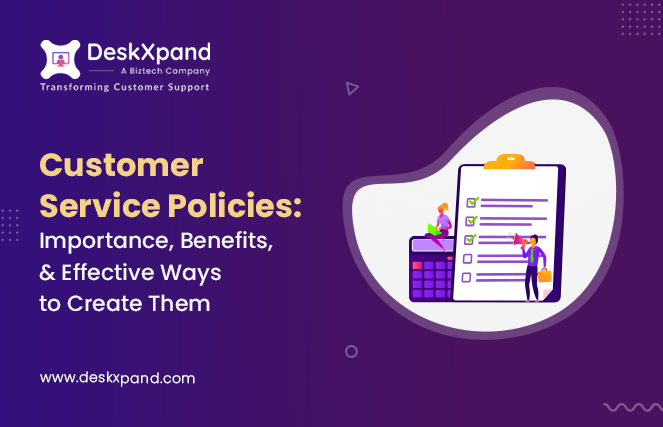Introduction
Ouch!
Brian here is clearly not very fond of Zachary’s customer support department. Imagine 192 million daily active users reading this tweet. Sounds dooming, right?
So, let’s talk about customer service.
Customer service is not a department. It is a philosophy that needs to be embraced by every member of an organization, from the CEO to recently hired interns. It doesn’t matter what type of business you have, whether B2B or B2C. It doesn’t matter what industry your business belongs to, be it hospitality, financial, retail, IT, healthcare, manufacturing, service, etc.
Customer support finds its way into every aspect of every business.
Every department and, consequently, every employee has an impact on the customer. Therefore, every decision must be made keeping the customers in mind. It is important that every employee understands their role in customer experience and customer service strategy. Businesses must understand that customer service policies play an important part in the overall strategy. Companies need to stick to just one mantra: Customer service is a philosophy!
And only customer-centric policies can help you stick to this mantra. In this article, I will list the fundamentals of framing the perfect customer support policies by keeping customers at the center. So, let’s get started:
Customer Service Policy – A Quick Rundown
Customer service policy is a living document created for support teams to keep everyone on the same page. It is a reference point for all customer support reps. It includes guidance, advice, and examples needed to ensure customer satisfaction and eventual retention. It is a set of procedures that guides the overall customer support approach and attitude. An example of customer service policy would be:
- The kind of refunds that are handled in the organization
- The criteria for offering refunds

Just having satisfied customers isn’t good enough anymore. If you want a booming business, you have to create raving fans.
Ken Blanchard

Excellence in customer service policy is a reference point for all customer service executives and allows them to handle situations similarly. If a brand keeps this consistency, a company ensures that every customer interaction is a success and every customer’s needs are fulfilled without bias.
Why is Customer Service Policy Important?
Customer service policies are imperative for your support team more than anyone else. Customer support policies ensure that your customers are treated equally while seeking services in the company regardless of anything. With a document in place, your support team will strive to speed up and ensure customer success. Some benefits of customer service policy involve:
How and Where are Customer Service Policies Used?
Customer service policies are integral to the operations of businesses across various industries and are employed in numerous ways and settings. These policies serve as a guiding framework outlining the standards and procedures for customer interaction. They are typically used within the organization to train and educate employees, ensuring they understand the company’s commitment to customer satisfaction and know how to handle various customer-related situations effectively.
Additionally, customer service policies are often made available to customers through a company’s website or printed materials, to set clear expectations for the level of service they can anticipate. These policies also find application in dispute resolution, helping to resolve conflicts and ensure fair treatment for customers.
Furthermore, they play a crucial role in compliance with regulatory requirements, ensuring businesses meet legal standards for customer protection and fairness. Overall, best customer service policies are vital for maintaining customer satisfaction, fostering trust, and achieving long-term success in the business world.
What Should be Included in a Customer Service Policy?
Customer service policy is usually a guideline for how customer service representatives will (or rather, should) act under specific circumstances. They will be unique to your business. Here are some common things to consider:
I. Company Values
You can include this as a part of your customer service mission statement.
II. Resolution Time and First Response Time
When do you plan to get back to the customer once they report their queries? Will you get back to them in an hour or a day? How soon will you resolve an issue? What are the hours when you’re available? Include all this information in your policy.
III. Customer-Centric and Professional Guidelines
Define how your employee behavior should be while interacting with your customers. Their approach must always be customer-centric; you could include all of this in your policy document.
IV. Industry-Specific Policies
For example, if you are an eCommerce brand, you can include the rules pertaining to shipping, returns, exchanges, and billing.
V. How You Collect Feedback
How do you plan to collect feedback from your customers? How often do you plan on doing it? Let your customers know how they can contact you and how they should respond to negative feedback. Think about questions like:
- How to react to unhappy customers?
- If the customer is not satisfied, do they get a refund? Do they get store credit?
VI. Escalation Rules
Make sure your support reps know what to do when your service level agreements or these customer service policies are violated. Make clear policies regarding the same.
Benefits of Customer Service Policies
Consistency
Customer service policies provide a standardized approach to handling customer inquiries, complaints, and requests. This consistency ensures that customers receive a uniform level of service regardless of which employee they interact with.
Improved Customer Satisfaction
Clear policies help employees understand customer expectations and how to meet them. This, in turn, leads to higher levels of customer satisfaction as their needs are consistently addressed.
Enhanced Communication
Customer service policies facilitate effective communication between employees and customers. When everyone is on the same page regarding procedures and expectations, communication is smoother and more efficient.
Conflict Resolution
These policies provide a framework for resolving conflicts and disputes, reducing the likelihood of escalations and legal issues. They can help employees navigate difficult situations more effectively.
Training and Onboarding
Customer service policies serve as valuable training tools for new employees. They provide a structured foundation for teaching customer service skills and company values.
Customer Trust and Loyalty
When customers see that a business has well-defined customer service policies in place, they are more likely to trust the company and become loyal customers. This trust can lead to repeat business and positive word-of-mouth referrals.
Compliance and Legal Protection
Customer service policies help businesses adhere to legal and regulatory requirements, reducing the risk of fines and legal disputes. They also demonstrate a commitment to fair and ethical practices.
Efficiency and Time Savings
Having established procedures in place can streamline customer interactions, reducing the time and effort required to address customer inquiries or issues.
Data Collection and Analysis
Customer service policies can include guidelines for collecting and analyzing customer feedback and data, providing valuable insights for improving products and services.
Competitive Advantage
A company with best customer service policies can use them as a competitive advantage by showcasing its commitment to customer satisfaction, setting it apart from competitors.
Risk Management
Policies can help mitigate risks associated with customer interactions, such as fraud prevention measures or policies for handling sensitive customer information.
Adaptability
Customer service policies can be updated and refined as the business evolves, allowing companies to stay responsive to changing customer needs and market dynamics.
How to Create Great Customer Service Policies?
The first step in creating a customer service policy is considering the big picture. Think about the mission of your customer service team as a whole. How do you define excellence?
Usually, customer service policies begin with a mission statement. It includes one or two lines summarizing how you want to treat your customers. Here are some tips for creating customer service policies:
1. Align It With Your Vision and Objectives
A company’s vision and objectives must create best customer service policies. Your customer service policy reflects your brand’s goals. Therefore, your policies must align with the vision of your brand.
Your customer service policy should focus on improving the welfare of your customers & your company’s productivity. Here are some things that you can address while developing a customer service policy:
- A time period when your customer support reps can respond to all queries.
- A target for the percentage of services returned.
- A target and method for how the support team handles queries.
- A target for the percentage of customers who will return to rebuy your services.
If you want to create a customer service policy that fits your customers’ needs, you need to align it with your business goals. Focus on the following key points:
I. Service/Product Overview:
Create policies that’ll help customers better understand the services you sell.
II. Speed:
Informative and efficient customer support attracts clients to your businesses. Therefore, you need to have a proactive workforce. Empower your support reps to respond as quickly as possible. Prompt customer service can bring more customers to buy your products and services.
III. Communication:
Customer relationship management completely depends on how the brand communicates with the customers. You must inform customers of changes in customer policies, new products, and shipping policies.
IV. Follow-up Process:
Give your customers the customer support team’s number, email, and name to contact. You need to include this information on your policies so that customers can get fast service from an actual person.
2. Understand Your Audience
The primary goal of building a customer service policy is to make your customers happy. Hence, you must design your customer support policy for customers’ needs. Include a system in your customer support policy that records customer complaints, comments, and urgent care issues. You need to collect information about what customers want from the customer support system and implement it.
Do not forget to review the feedback provided by your customers. The better you understand your customer service policy, the better you can optimize your services. Be sure to involve your support representatives as well. Since support reps interact with customers in the company, they can help create straightforward customer service policies and plans.
Besides this, online surveys and service providers can help you know what your customers want and add them to the policy.
3. Identify Top Customer Operational Issues
As a brand, you need to consider customer feedback and feedback from your support reps while making your business policy. Create a list of challenges your customers face while trying to reach out to your support executives. You shall communicate with your team on things that affect the customer support processes. Understand the problems, know the cause, propose a solution, and include them in implementing your customer support policy.
Adhere to best customer service policies and practices. Understand what customers want, which will help you create a successful customer support policy.
4. Customer First Approach
The concept of having a customer-first approach is pretty straightforward. You need to develop policies with customer experience as the core of your brand’s goals or values.

The proper focus & investment of time and budget requires a more strategic approach and planning. It is not only a marketing problem or a technology initiative.
Kelly Uhlrich

As a brand, you’ll need to integrate customer service policy into your company culture as a whole. You need to hire and amalgamate a team of skilled customer service agents. The next important thing to do would be to communicate clear values to your employees. Make them more confident in what your company stands for.
5. Operationalize Customer Empathy into Policies
Many companies and brands fail to understand and practice this buzzword: Empathy. Customer empathy means the ability to identify a customer’s emotional need. It involves understanding the reasons behind their needs and effective responses to them.
Ask yourself the following questions:
- Do you have an empathetic customer service policy for frustrated customers?
- Are those policies customer-friendly?
- Do your policies encourage customers? Are they clear and honest?
Empathetic customer process design also significantly impacts marketing activities. Customer-focused policies build empathy, and empathy builds trust. If customers feel acknowledged, they’re more likely to be loyal to your brand.
One of the best customer service policy examples would be Slack. It operationalizes empathy right into its strategies. Their customer support reps spend a lot of time observing customer messages, and they try to understand their needs intuitively. The customer support specialists conduct thorough research.
Plan and make the customer journey maps, and then frame your customer support policy to exercise empathy accordingly. Evaluate whether your customer touchpoints provide a good, fast, and convenient experience.
Take a look at the big picture of your policies and processes. Lastly, implement customer empathy all around the company culture.
6. Align Your Policies With SLA
The last thing would be to align your customer service policy with your service level agreements. It’ll set your brand and employees upto a certain standard and improve your brand value. SLAs are commonly used to measure problems and maintain process timelines. Service level agreements establish the basic conditions of your support services—they lay out an agreement between brands and their customers. For example, designating the maximum amount of wait time is acceptable to be considered a good quality of service.
It is important to remember that SLAs are different from key performance indicators. KPIs are usually used to track performance. Deriving and implementing SLAs will require you to facilitate constructive feedback from customers and analyze ways to improve customer satisfaction.
Customer Service Policies that Businesses Can Consider
Response Time Policy
Establish specific timeframes for acknowledging and addressing customer inquiries and setting expectations for timely assistance.
Return and Refund Policy
Outline procedures for handling product returns, exchanges, and issuing refunds to ensure transparency in customer transactions.
Privacy and Data Protection Policy
Safeguard customer data and provide guidelines for securely handling and storing sensitive information, complying with data protection regulations.
Communication Policy
Specify the channels (phone, email, chat, etc.) and response times for customer communication, ensuring consistency and responsiveness.
Customer Feedback Policy
Establish processes for collecting, analyzing, and acting upon customer feedback to drive continuous improvement in products and services.
Complaint Resolution Policy
Define clear steps and timeframes for resolving customer complaints and disputes, promoting fair treatment and satisfaction.
Escalation Policy
Detail the escalation process for unresolved customer issues, including when and how to involve higher-level support or management.
Product Support and Warranty Policy
Communicate the terms of product warranties, technical support availability, and procedures for resolving product-related issues.
Billing and Payment Policy
Clarify billing cycles, payment methods, and any fees associated with late payments, ensuring transparency in financial transactions.
Service Level Agreement (SLA)
For B2B businesses, define SLAs that specify response times, availability, and service quality commitments.
Employee Training and Development Policy
Emphasize ongoing training and development programs to equip employees with the skills needed to provide exceptional customer service.
Quality Assurance Policy
Implement processes for monitoring and assessing the quality of customer interactions to maintain high service standards.
Customer Appreciation Policy
Develop strategies for expressing gratitude and rewarding loyal customers to strengthen relationships.
Build Customer-Focused Policies: Empower With DeskXpand
A customer service policy is a way to hold your organization to a consistently high standard. The ideas in your customer service policy should be based on your company’s goals. You must be able to outline concrete ways to reach those goals.
It is easier to keep the promises made in your customer service policy if you have the right tools at your disposal. Your technology investments can improve your customer service and track your success. Take your standards to the next level with customer support software that can help you effortlessly implement your service policy and take your standards to the next level. Sign up for a free trial with DeskXpand now.
DeskXpand is an exceptional customer support software that helps businesses provide quick resolutions to their customers, simplify their support, and help them cultivate best customer service policies.
We are an ISO27001-certified development company with 16+ years of development experience. We build products that you can customize according to your present and future needs.
Start Your Free Trial Now









